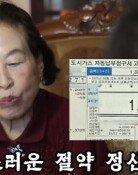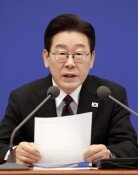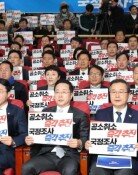Seoul should pace its efforts to improve inter-Korean relations
Seoul should pace its efforts to improve inter-Korean relations
Posted May. 28, 2020 07:44,
Updated May. 28, 2020 07:44
The South Korean government has decided to revise the act on inter-Korean exchanges, easing the obligation to report those who make contact with North Korea. “The aim is to update the law and make it more relevant to our time,” explained a source from the Ministry of Unification on Tuesday.
Seoul will also make it more difficult to limit or stop ongoing inter-Korean projects by requiring an approval of the cabinet council, so that exchange programs such as the Kaesong Industrial Complex or trips to Mount Kumgang will not be swayed by the political leanings of the government. The Moon Jae-in administration has made great progress with the bill in a short period of time with the online hearing already held on Wednesday. This is only the latest of Seoul’s efforts to resume exchanges with Pyongyang following last week when it questioned the effectiveness of the May 24 measures, which were introduced in response to the sinking of the South Korean naval warship Cheonan sinking.
Many parts should be renewed in the act on inter-Korean exchanges as it has not reflected the changes over the past 30 years since its legislation on August 1, 1990. The act has caused inconvenience by mandating people to report even those who go to a North Korean restaurant overseas or meet North Koreans by chance. With almost no report and no penalties applied, there is little doubt that it can benefit from some revisions. However, the government should make sure that the law still serves its purpose after revision as it was devised to protect South Korean nationals overseas and prevent avid followers of North Korea from making contact with the regime. Unlike Seoul that provides freedom of movement to its people, Pyongyang still allows only spies and secret agents to travel overseas.
“Instead of relying solely on the U.S.-North Korean dialogue, we should explore what can be done between the two Koreas,” President Moon Jae-in said in his speech celebrating the third year inauguration anniversary. The remark has sparked a series of announcements from the ruling party officials about inter-Korean relations. The minister of unification visited the mouth of River Han to review the inter-Korean waterways project while the Ministry of Unification has decided to offer an aid worth 4.9 million dollars to North Korea through the United Nations. The U.S. government has stressed the importance of aligning the speed of inter-Korean cooperation and that of North Korea’s denuclearization, but the Moon administration does not seem to listen.
If the South Korean government continues to push for pro-Pyongyang policies, it will undermine cooperation with Washington and denuclearization efforts will go to waste. It is important to improve relations with the North, but we risk giving North Korea the upper hand by rushing it. Pyongyang engages in dialogue with Seoul only when the regime needs it based on the power dynamics. The South Korean government should practice strategic patience to prompt changes in North Korea.







